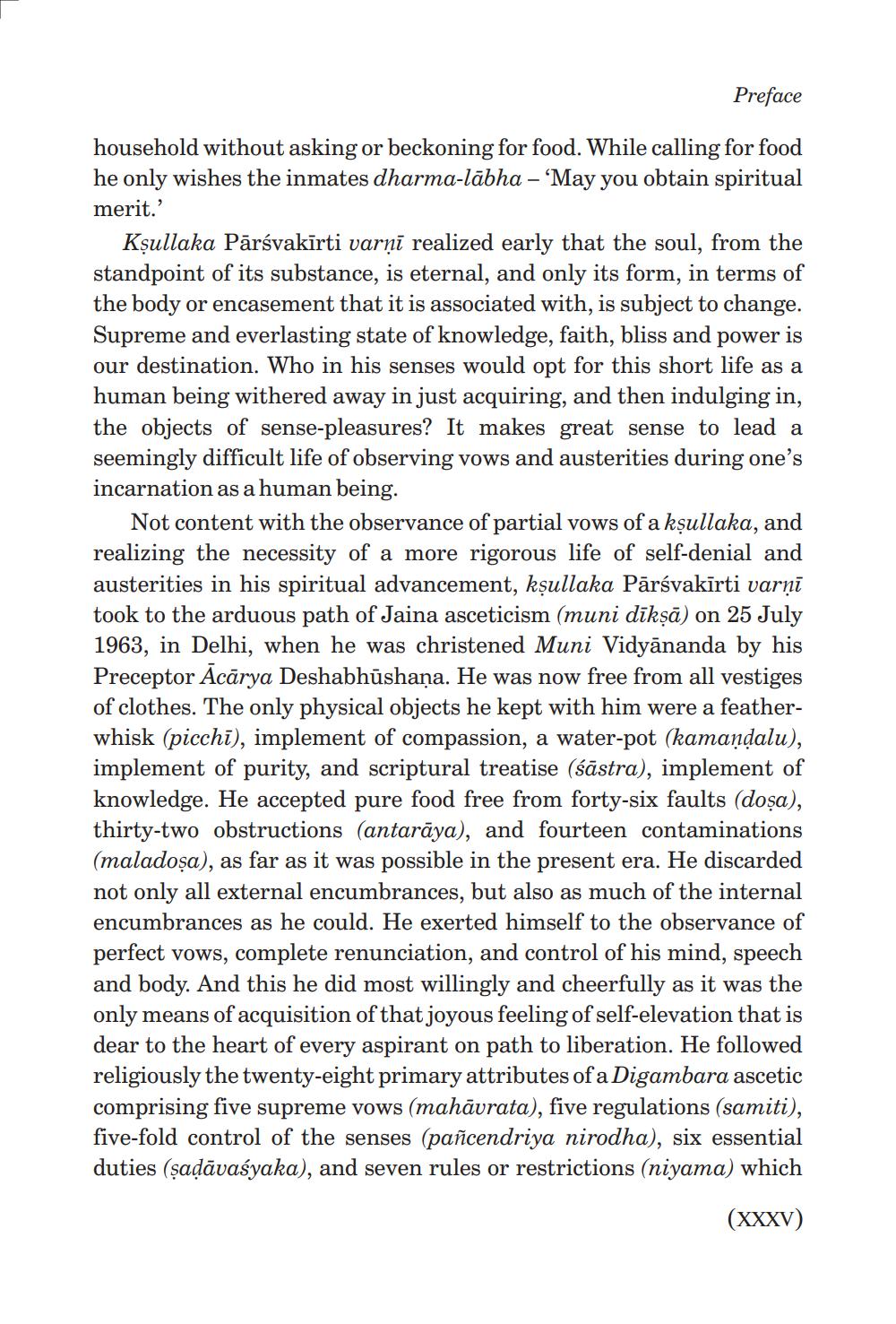________________
Preface
household without asking or beckoning for food. While calling for food he only wishes the inmates dharma-labha - 'May you obtain spiritual merit.'
Kṣullaka Pārsvakīrti varṇī realized early that the soul, from the standpoint of its substance, is eternal, and only its form, in terms of the body or encasement that it is associated with, is subject to change. Supreme and everlasting state of knowledge, faith, bliss and power is our destination. Who in his senses would opt for this short life as a human being withered away in just acquiring, and then indulging in, the objects of sense-pleasures? It makes great sense to lead a seemingly difficult life of observing vows and austerities during one's incarnation as a human being.
Not content with the observance of partial vows of a kṣullaka, and realizing the necessity of a more rigorous life of self-denial and austerities in his spiritual advancement, kṣullaka Pārśvakirti varnṇī took to the arduous path of Jaina asceticism (muni dīkṣā) on 25 July 1963, in Delhi, when he was christened Muni Vidyananda by his Preceptor Acārya Deshabhūshaṇa. He was now free from all vestiges of clothes. The only physical objects he kept with him were a featherwhisk (picchi), implement of compassion, a water-pot (kamaṇḍalu), implement of purity, and scriptural treatise (śāstra), implement of knowledge. He accepted pure food free from forty-six faults (dosa), thirty-two obstructions (antaraya), and fourteen contaminations (maladosa), as far as it was possible in the present era. He discarded not only all external encumbrances, but also as much of the internal encumbrances as he could. He exerted himself to the observance of perfect vows, complete renunciation, and control of his mind, speech and body. And this he did most willingly and cheerfully as it was the only means of acquisition of that joyous feeling of self-elevation that is dear to the heart of every aspirant on path to liberation. He followed religiously the twenty-eight primary attributes of a Digambara ascetic comprising five supreme vows (mahāvrata), five regulations (samiti), five-fold control of the senses (pañcendriya nirodha), six essential duties (ṣaḍāvasyaka), and seven rules or restrictions (niyama) which
(XXXV)




